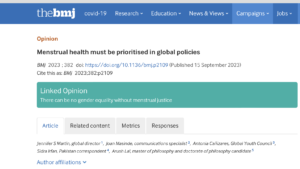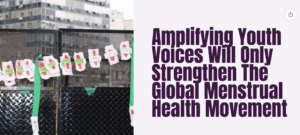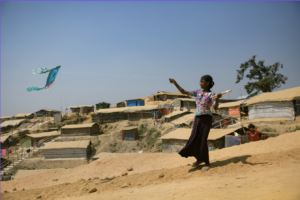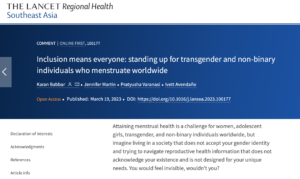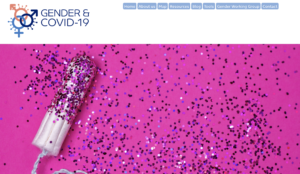Geneva will host world leaders, advocates, and public health professionals as the World Health Assembly convenes for it’s 75th session. This session will focus on ‘Health for Peace, Peace for Health’ for recovery and renewal. This topic is in response to the multiple crisis that are impacting the lives of billions of people around the world in 2022.
What images does the word “crisis” evoke? Perhaps Russia’s recent invasion of Ukraine comes to mind. The word “crisis” could also bring up thoughts of the displacement of millions of Afghan refugees in 2021; the riots that occurred throughout the United States in 2020 because of George Floyd’s murder; racially motivated mass shootings; or even the COVID-19 pandemic, which continues to affect everyone, but disproportionately those from low-to middle-income countries as some leaders in high-income countries declare this pandemic over and fail to recognize the meaning of the world “global” in “global pandemic”
So, who decides when and how we are in a crisis? And, ultimately, who decides when a crisis is over?
There is no doubt that these events are crisis. They are all large-scale humanitarian conflicts that have left countless individuals and families homeless, jobless, impoverished, grief-stricken, and feeling the lasting effects of physical and emotional harm. However, to solely think of crisis within the context of large-scale humanitarian conflict is not only limiting and inaccurate, but it is also detrimental to individuals experiencing crises such as those experiencing homelessness, those in the prison system, or those that are facing gender-based violence.
Amid the large-scale humanitarian crises is a shadow crisis, equally significant yet inadequately spoken about—the assault on sexual and reproductive health and rights (SRHR) in the United States, and the potential ripple effect that this could cause as this anti-abortion sentiment titrates through the rest of the world’s political systems.
According to the Guttmacher Institute, SRHR refers not just to the absence of disease but also physical, emotional, mental, and social wellbeing in all aspects of sexuality and reproduction. This includes the right for individuals to make decisions about their bodies and their relationships and to have access to services that support these decisions.
The recent decision of the United States Supreme Court to overturn Roe v. Wade, which grants the right to abortion, represents an attack on SRHR because it takes away from bodily autonomy. As history demonstrates, illegalizing abortion does not prevent abortions from taking place. Instead, it increases the risk of chronic and infectious diseasesand even death resulting from unsafe abortions, causes physical and emotional distress, and perpetuates poverty by forcing parents to have children they may not have the means to take care of. These effects of illegal abortion are disproportionately seen in already marginalized groups, including women of color, low-income communities, and individuals with disabilities.
The SRHR crisis extends beyond high-level legal decisions affecting bodily autonomy into the realm of individuals’ on-the-ground, everyday experiences. Affected by this crisis are the 1 in 3 women worldwide who have experienced physical or sexual violence in their lifetime. The more than half of women around the world who do not have access to modern contraception. The 2 out of 3 adolescent girls across the globe who have no idea what is happening to them when they begin menstruation. The SRHR crisis impacts female inmates in US prisons who are made to completely strip down in front of male guards and display their stained underwear to prove that they need access to menstrual products. It affects individuals all over the world who spend an average of $1773 throughout their lifetime on menstrual products—a number that would be lower if menstrual products were not taxed as luxury goods.
There are approximately 800 million women, adolescent girls, transgender men and non-binary individuals menstruating each day, yet 500 million people simply cannot attain menstrual health.
How could the above statistics not be viewed as crises?
Who has the power to decide what is and is not considered a crisis?
Why are we prioritizing menstrual health when in a crisis when women and adolescent girls have managed it without complaining for centuries? To claim that something “does not matter” or “is not a crisis” is the ultimate indication of privilege.
We recognize that everyday SRHR realities experienced by many discussed above are crises, and they are amplified by large-scale humanitarian conflicts. For example, gender-based violence, early and unwanted pregnancy, but also inadequate access to menstrual products skyrocketed between March and December 2020 among adolescent girls and young women in Kenya as a direct result of the COVID-19 pandemic. Women who have been internally displaced in Ukraine are experiencing gender-based violence three times more frequently than women who have not been displaced. Meanwhile, in Lebanon during the ongoing state collapse, a packet of pads cost 3,000 to 4,000 Lebanese pounds ($2) in 2019. In 2021, the same product costs anywhere from 13,000 pounds ($8.6) to 32,000 pounds ($21). On average, a woman in Lebanon will spend around 90,000 pounds ($60) on menstrual products alone every month.
Yet, menstrual health is not always prioritized in all crisis response.
The United Nations Population Fund (UNFPA) does include reusable and single-use menstrual pads in their ‘Dignity Kits’ which have been disrupted to women and adolescent girls in humanitarian crisis, particularly to the displaced individuals from Ukraine that are now residing in Belarus and Moldova.
We believe that more needs to be done to preserve SRHR and the right to attain menstrual health in times of crisis.
When threats to SRHR are not addressed, it is not only individuals who bear the consequences. Inadequate attention to the SRHR crisis is detrimental to entire families, communities, nations, and economies. How many more individuals affected by SRHR issues must drop out of school due to early and unwanted pregnancy; miss out on employment opportunities due to lack of education, unfair parental leave policies, or workplace sexual harassment; or prematurely have their lives ended because of unsafe and unsanitary practices for things to change?
This Menstrual Hygiene Day #WeAreCommitted to illuminating the SRHR needs women, adolescent girls, transgender men, and non-binary individuals, and #WeAreCommitted to advocating for menstrual health mainstreaming in crisis. We call on multilateral organizations and governments to recommend stronger provisions to address menstrual health needs in emergency programming and wider public health programming. We also call upon leaders like the World Health Organizations to fund a specific team that addresses menstrual health across the life course – from menarche to menopause.
Everyone has the right to have their basic needs met.
To not view the assault on SRHR as a crisis is a crisis indeed.
Pavita Singh, MPH, Girls Health Ed
Dr Jennifer S. Martin, Pandemic Periods
Candice Chiwa, The Minister of Menstruation
Halima Lila , Africa Coalition for Menstrual Health and Youth Participation, UNFPA ESARO


